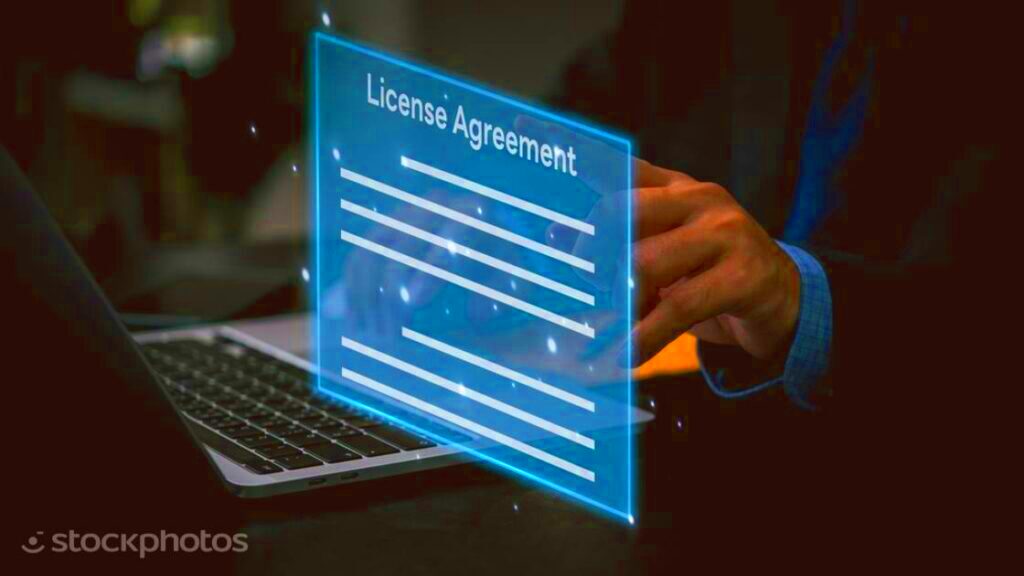When you take or download an image, it’s important to understand that it’s not automatically yours to use however you like. Image licensing ensures that you have the legal rights to use a photo in a specific way. Whether you are using images for personal projects, business websites, or marketing campaigns, knowing how
In simple terms, image licensing is an agreement between the image owner and the user, outlining how the
Why You Need to License Your Images

Licensing images is essential for several reasons. First, it protects the rights of the creator, ensuring they are acknowledged and compensated for their work. When you license an image, you are respecting the intellectual property of the photographer or artist, which is a crucial ethical and legal practice.
On the other hand, as a user, licensing gives you the freedom to use the image in ways permitted by the agreement. Without a proper license, you could
Also Read This: Mastering Makeup Fixer Spray for All-Day Freshness
How to License Images for Commercial Use
When you’re using images for commercial purposes—such as on a business website, in marketing campaigns, or on products—you must ensure that the images are properly licensed. Commercial use generally involves any situation where the image will directly or indirectly result in financial gain. Understanding how to license images for commercial use is critical for avoiding legal problems and maintaining a professional standard in your projects.
To license an image for commercial use, follow these steps:
- Check the image's licensing terms: Ensure that the image you want to use allows for commercial use. Some licenses, like Creative Commons Non-Commercial (CC-NC), specifically prohibit commercial usage.
- Purchase a license: For royalty-free or rights-managed images, you’ll need to purchase a commercial license from the source (such as a stock image website).
- Understand the license scope: Each license will have specific limitations, such as the number of times an image can be used, geographical restrictions, or the types of media it can be used on.
- Give proper attribution: Some licenses, like Creative Commons, may require that you provide credit to the image creator.
It’s important to review the terms of each image license carefully. If you're unsure, it's always best to consult a legal professional to make sure you're fully compliant.
Also Read This: How to Change the Perspective of an Image in PowerPoint
Step-by-Step Guide to Licensing Your Own Images
If you're a photographer or artist, licensing your own images can be a great way to generate income while protecting your work. This process allows others to use your images under certain conditions that you set, ensuring that you maintain control over how your work is used.
Here’s a step-by-step guide to help you license your own images:
- Create high-quality images: Make sure the images you plan to license are of professional quality, as this will make them more appealing to potential buyers.
- Choose the type of license: Decide whether you want to offer royalty-free, rights-managed, or Creative Commons licenses. Each has different implications for how your images can be used and how you’ll be compensated.
- Use a stock photo platform: Many photographers use stock image platforms, like Shutterstock or Adobe Stock, to license their images. These platforms handle the transaction and distribution, making it easier for you to reach buyers.
- Set the terms and pricing: Define how your images can be used, such as for personal, editorial, or commercial purposes. Set a fair price that reflects the intended use.
- Monitor usage: Keep an eye on how your images are being used to ensure that they’re not being misused or distributed without permission.
Licensing your images is an effective way to protect your intellectual property while earning from your creative work.
Also Read This: How to Find Your Stock Images on Adobe Stock
Common Mistakes to Avoid When Licensing Images
Licensing images can be tricky, and there are several common mistakes that both users and creators often make. Avoiding these pitfalls will help you stay on the right side of copyright law and ensure a smooth process for both parties.
Here are some of the most common mistakes to avoid:
- Not reading the license agreement thoroughly: Always read the fine print. Different licenses come with various restrictions, and misunderstanding these could lead to unintentional misuse.
- Assuming images on the internet are free to use: Just because an image is easily accessible doesn’t mean it’s free to use. You must confirm the licensing status before using any image.
- Improper attribution: For images that require attribution (like some Creative Commons licenses), failing to properly credit the creator can lead to legal issues.
- Using a license that doesn’t cover commercial use: Some licenses are only for personal or editorial use. Make sure that the license explicitly allows for commercial use if you plan to use the image in business-related projects.
- Failing to keep a record of your licenses: Always keep documentation of your purchased licenses in case you need to prove that you have the right to use the image.
By being aware of these common mistakes, you can ensure that your image licensing process is s
Also Read This: Customizing Stock Photos from Imago Images to Fit Your Brand
FAQs About Image Licensing
When it comes to image licensing, there are often questions about how it works, what is allowed, and how to avoid potential issues. Below are some frequently asked questions to help clarify the process:
Q: Can I use any image I find online?
A: No, not all images found online are free to use. Most images are protected by copyright laws, meaning you need permission or a license to use them legally.
Q: What is the difference between royalty-free and rights-managed licenses?
A: A royalty-free (RF) license allows you to use the image multiple times after paying a one-time fee, while a rights-managed (RM) license restricts how and where the image can be used, often with fees based on usage.
Q: Do I need to give credit to the photographer if I buy a license?
A: It depends on the type of license. Some licenses, like certain Creative Commons licenses, require attribution, while others do not. Always check the terms of your license.
Q: Can I edit or modify an image after licensing it?
A: Not always. Some licenses allow modifications, while others restrict you from altering the image. Be sure to review the license agreement for any specific restrictions on modifications.
Q: What happens if I use an image without a license?
A: Using an image without a proper license can result in legal consequences, including fines or lawsuits. It's essential to ensure that every image you use is properly licensed to avoid such issues.
Conclusion: The Importance of Proper Image Licensing
Proper image licensing is crucial for both creators and users. It ensures that photographers and artists are compensated for their work and helps users avoid legal trouble. By understanding the different types of licenses and following best practices, you can use images responsibly while respecting the rights of others.

 admin
admin








